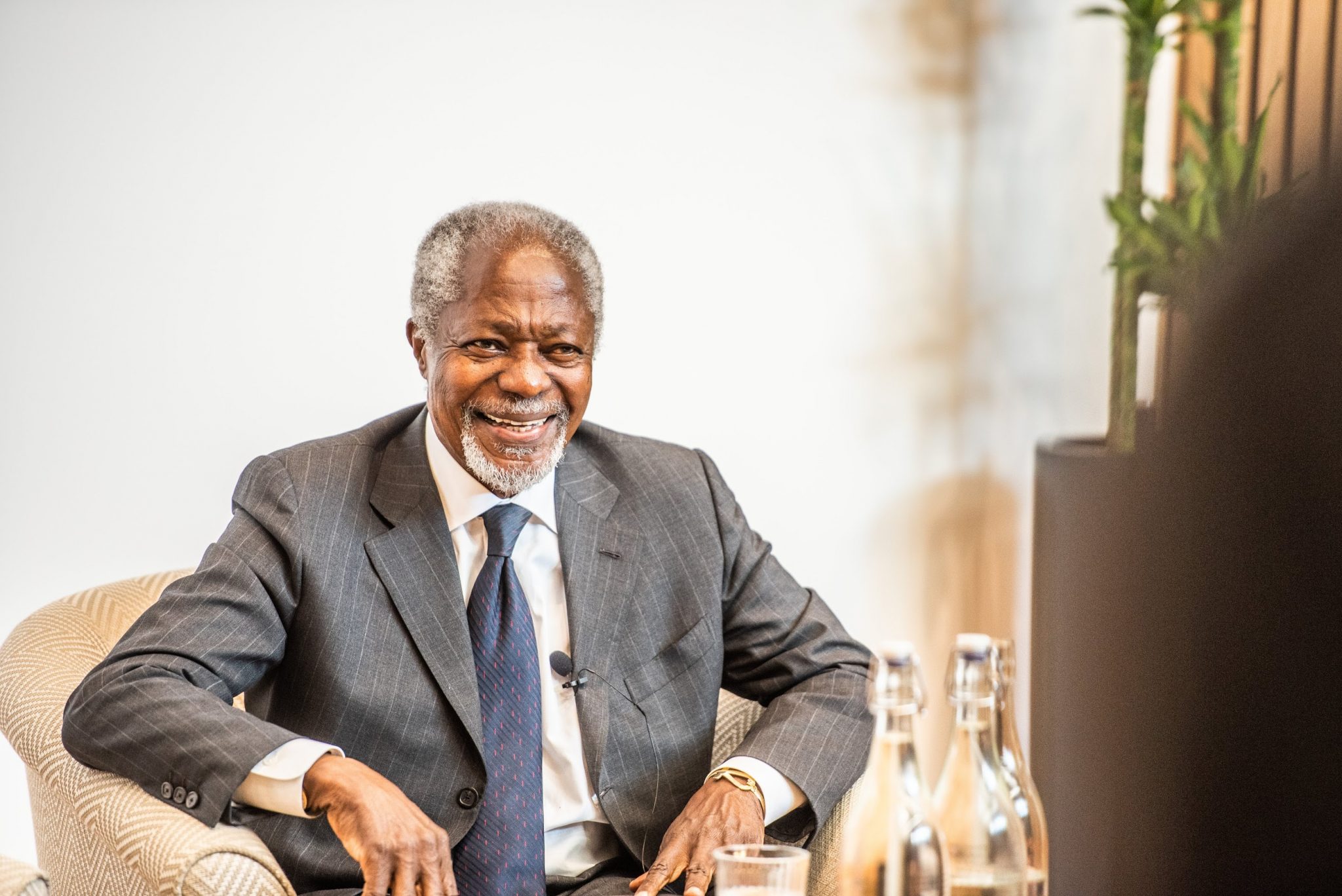The United Nations: Past and Present
“Annan’s term in office was both the best of times and the worst of times for the United Nations”
MICHAEL C. WILLIAMS
International Affairs 89: 5 (2013) 1297–1301
© 2013 The Author(s). International Affairs © 2013 The Royal Institute of International Affairs. Published by John Wiley & Sons
Ltd, 9600 Garsington Road, Oxford ox4 2dq, UK and 350 Main Street, Malden, MA 02148, USA.
Interventions: a life in war and peace. By Kofi Annan with Nader Mousavizadeh. London: Allen Lane. 2012. 383pp. Index. £25.00. isbn 978 1 84614 297 0. Available as e-book.
Governing the world: the history of an idea. By Mark Mazower. London: Allen Lane. 2012. 475pp. Index. £25.00. isbn 978 0 71399 683 8. Available as e-book.
Kofi Annan is the only UN secretary general to emerge from within the ranks of the organization. Without exception, the others—Trygve Lie, Dag Hammarskjöld, U Thant, Kurt Waldheim, Pérez de Cuéllar, Boutros Boutros-Ghali and Ban Ki-moon—had served their respective national governments, usually as foreign ministers. In many ways Annan’s appointment was an accident in the sense that it only arose because of the Clinton administration’s determination not to allow Boutros-Ghali the usual second term, not least because he had fallen foul of Secretary of State Madeleine Albright over Bosnia.
Joining the UN in 1962 at the age of 24 as a budget officer in the World Health Organization at the lowest professional grade (P1), Kofi Annan left in 2006 at the end of his second term as secretary general. Such a career in a national civil service would have been extraordinary. It is unparalleled in an international civil service. Annan’s term in office (1996−2006) was both the best of times and the worst of times for the United Nations. Alongside the horrors of the massacre in the Bosnian town of Srebrenica and the genocide in Rwanda, his refusal to kowtow to George W. Bush and Tony Blair over the invasion of Iraq in 2003 eventually gave him a moral force they had squandered. On his watch, too, East Timor (2002) and eventually Kosovo (2008) became independent, in no small measure due to his endeavours. But although there were happy outcomes for both countries, these came only after considerable violence, the possibilities of which Kofi Annan had spent much time warning the Security Council about. In 1998, Annan presided over the Rome Conference which led to the creation of the International Criminal Court, the greatest advance in international justice since the Nuremberg Trials of 1946…
Click on the pdf link below to download the full article.



